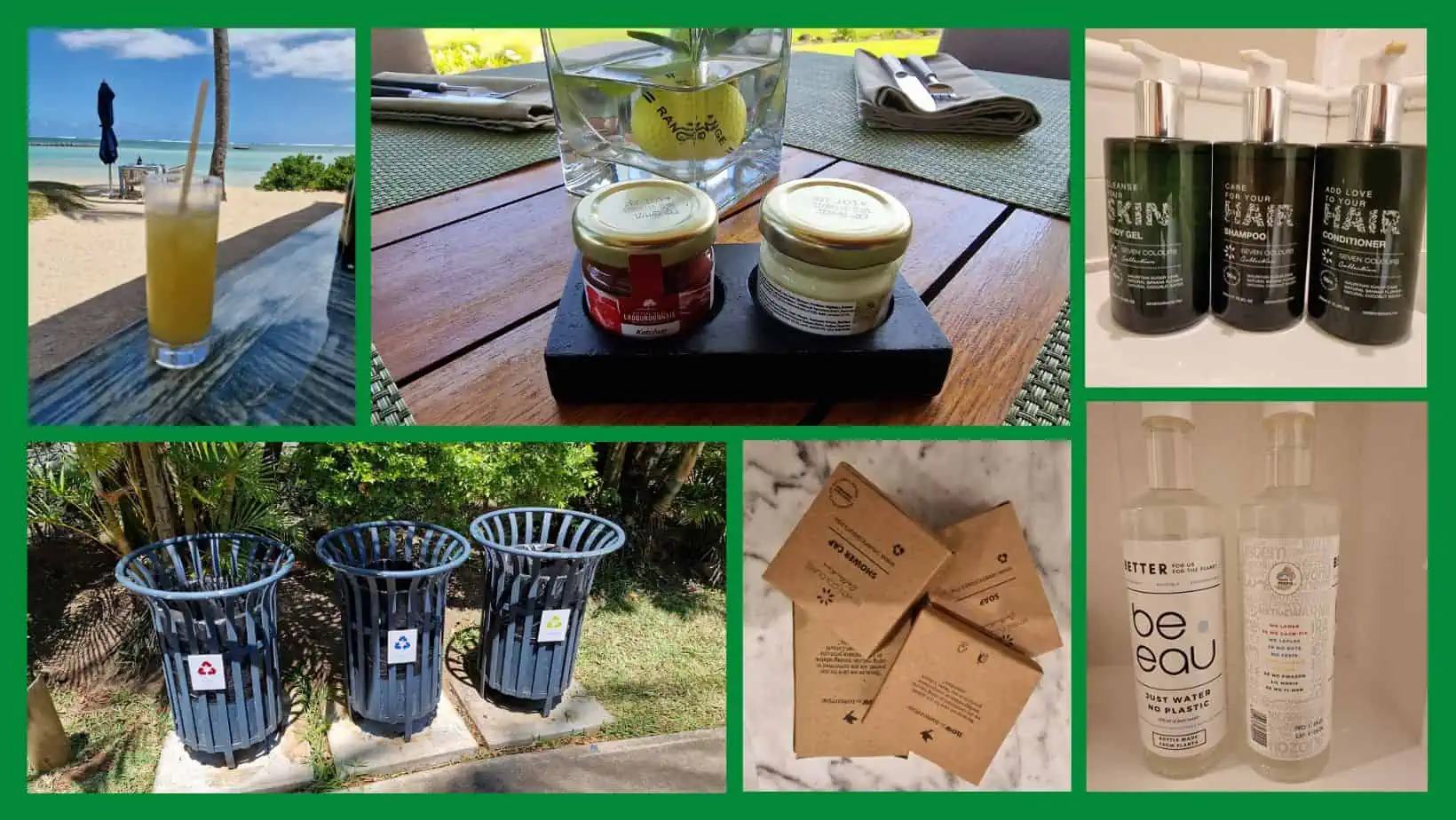Luxury hotel business plus recycling: This is how waste avoidance works
Avoiding waste is his passion: when Flavio Joseph talks about the challenges of the circular economy in the club restaurant at the Heritage Golf Club in Mauritius, it’s all about the details. How do you resolve the conflict at the straw? The discerning guest wants the straw in the drink, but the Heritage Resort wants to avoid trash. The plastic straw doesn’t fit into the concept. No matter how beautiful it looks in cocktails and mocktails. Travel time is garbage time – those who pack their golf bags and head for their latest dream destination don’t think about the fact that they produce garbage on site. 3.7 kilograms per person per night in a 5-star hotel – that’s what the German Hoteliers’ and Restaurant Association DEHOGA has calculated. Ketchup bottles in the restaurant, water bottles on the golf cart, shampoo containers in the bathroom or even plastic bags and packaging material from the pro store. Unresolved waste issues are also causing problems for numerous well-known golf destinations. On Mallorca, for example, the recycling rate for waste is only 20 percent. Garbage left lying around or washed up on the beaches of island paradises has long been part of everyday life.
65 percent recycling rate – that’s the figure at Heritage Le Telfair Resort. The aim is to achieve 80 percent by 2026. The resort is a prime example of best practice when it comes to waste reduction and recycling. The real challenge here is undoubtedly the combination of offering the top hotel industry and at the same time doing without as much as possible that is not much more than a nice cover. From ketchup jars to gift items “If we can’t do without the products because they are part of the service offered to guests in a 5-star hotel, we have to think about the second-best solution and come up with something,” summarizes Flavio Joseph. In the case of the straws, a variant has now been chosen that decomposes biologically. The little ketchup and mayo jars go rinsed out into an art project created by Heritage Resorts. From July to September alone came to 328.4 kg of the small glasses. “La Maison des Artisans” gives local artists and artisans opportunities to make artwork or gift items with items from the Heritage Resorts, which are then sold back to visitors to the island. Uneaten food does not end up in the residual waste, but either on the compost or in a large pig farm. Paper is now only used for documents that absolutely have to be printed out and signed. Otherwise, tablets are the constant companion of hotel employees and guests. The label “this is not water, but a plant product” is emblazoned on the plastic bottles in all resorts on the island. Sugar cane, which has long been the dominant agricultural product in Mauritius, can also be used to make a bottle that can then be recycled. https://golfsustainable.com/al-zorah-ein-golfclub-und-die-welt-der-mangroven/ Films are the latest project from the hotels’ sustainability coordinator. “To ensure the high standards of hygiene, we have slides everywhere here at the hotel. Cleaning products are wrapped in foil, food is naturally covered with foil, kitchen utensils are wrapped in it. Plastic sheeting is used in every part of the resort. Twelve kilometers of film, Flavio estimates, are consumed by the Telfair Hotel alone each year. He is currently planning an audit to address the issue of avoidance with employees. Instead of foil, there will be lids, matching boxes and other containers. Plastic bottles are a no-go According to the international Green Key certification program for the hotel industry, a waste avoidance rate of 90 percent is feasible in hotels. The combination of circular economy and waste avoidance is not easy, especially in the luxury hotel sector: guests seldom give up their demand for comfort and luxury, even if they fundamentally support the issue of sustainability. Many guests have now become accustomed to the lack of miniature disposable bottles in the bathrooms, and they have long since given way to large bottles in the heritage resorts as well; soaps and other hygiene materials are in packaging made of recycled materials.Voluntarily dispensing with the daily change of towels, however, is now almost standard in the hotel industry. Recycling rates in golf are rarely talked about. Only the plastic bottles for the round are increasingly becoming a no-go worldwide. A glance in the pro store at bags of tees or the double-packed golf balls by the dozen makes it clear that there is still room for improvement. As for golf, Flavio Joseph at Heritage Golf Club also has to pass at the moment. It has not yet reached the recycling rate of 64 percent here. There would also be potential for packaging in the area of greenkeeping. The issue of waste is complex – and largely invisible to the guest. But that does not change its significance. https://golfsustainable.com/das-5-sterne-hotel-mit-18-loecher-golfplatz-setzt-auf-neue-projekte-beim-grenkeepin-gastronomie-und-hotelbetrieb/








